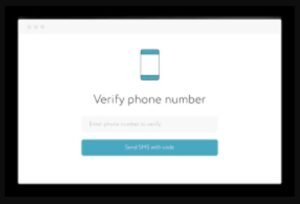How Phone Number Verification Can Prevent Fraud and Account Creation in Bulk – Most individuals have been tempted to fill up contact forms and social media profiles with fake information at one point or another. They’re worried that a corporation will bombard them with emails, attempt to obtain any additional month of free service, or don’t want to hand over their personal information to a third party.
This is a risky move, as tempting as it may be to get free Netflix. For both consumers and businesses, fraud and the establishment of many fake accounts may have a variety of negative repercussions.
It’s good that contact and phone verification services are available to guarantee that contact information is accurate. Businesses will flag incorrect phone numbers and email addresses. Verifying a phone number is now a cinch thanks to these tools. Phone verification is the term for this kind of service.
Practical applications and significant advantages have led to their widespread usage in marketing and communication tactics.

Phone Verification: What Is It Good For?
Phone verification services verify that the numbers on a list are accurate and presently being used. The service marks numbers that don’t fulfill both of these requirements. It is also possible to utilize verification APIs for other reasons, such as ensuring that contact data is consistent and regulating call hours to ensure compliance.
Verifying a phone number may be done for several purposes, including:
- Consistently delivering SMS API marketing messages to the appropriate recipients
- Verifying two-factor authentication via text messages or SMS.
- Verify that the customer’s information is accurate for future reference and communication.
- Verifying the identity of buyers via the use of contact details
- Confidential data should always be delivered to the correct individual
Fraud and bulk account creation are being thwarted by increasing usage of phone verification. Both of these problems are time- and money-consuming for businesses. They may also distort statistics and affect subsequent campaigns. Valid or false client information may have significant consequences for firms that deal with sensitive data, such as banks and debt consolidation agencies.
Do You Know How It Prevents Account Creation Fraud?
By analyzing contact information, especially phone numbers, and verifying their validity and usage, phone verification systems are used to ensure the safety and security of individuals and businesses. If a number is incorrect, invalid, or both, it will be highlighted in red. Companies have a variety of choices to choose from after that:
- To rectify the situation, get in touch with the consumer using a different communication channel (ideally one that can be confirmed). This is particularly true for firms that deal with highly confidential data, such as those in the financial and healthcare industries.
- The client or account should be taken off of any text and mailing lists and any other services the firm provides. This method may remove invalid, outdated, or “junk” email addresses and phone numbers from the database.
- An investigation should be conducted to determine whether or not this was deliberate misinformation. Depending on the findings, companies may take remedial action as required.
Companies may take one of three possible actions following the separation of valid from verified phone numbers. Fraud or mass account creation raises the likelihood of the third scenario.
Phone numbers and email addresses are often fabricated when opening new accounts because of the importance of having accurate contact information. In the absence of an internal validation service, false information will not be recognized.
If a notice appears up (typically stating something like “invalid contact information” or something similar) or whether an issue happens when consumers attempt to enter their information, you’ll know if a corporation uses email and telephone verification.









